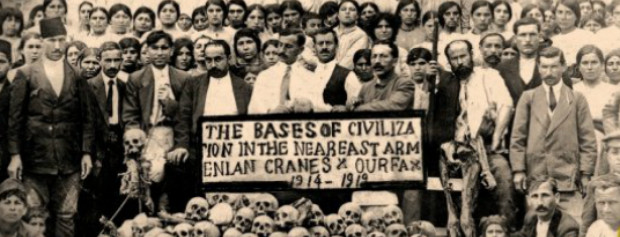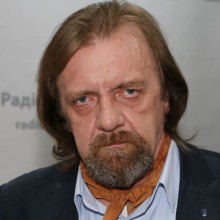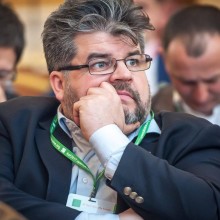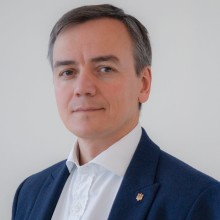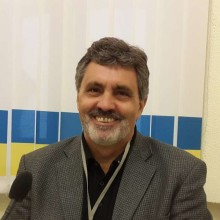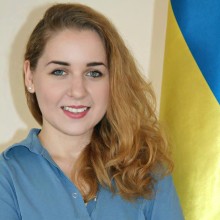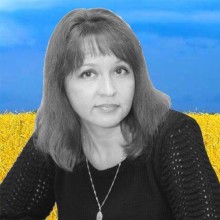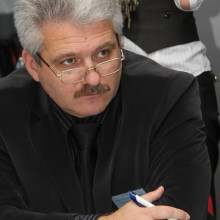Analysis by O.Belokolos, the Maidan of Foreign Affairs expert, for Dzerkalo Tyzhnya.
- “There is no such thing as a small nation. The greatness of a nation is no more determined by its numbers than the greatness of a man is by his height”
Victor Hugo
On April 12 of this year during the mass at St. Peter's Basilica in Rome to commemorate the 100th anniversary of the mass extermination of Armenians in the Ottoman Empire during the World War II, Pope Francis called it "the first genocide of the XX century" and set it in line with the crimes of Stalin and Nazi regimes.
As the pontiff stated, humanity "cannot put an end to the shedding of innocent blood." The Pope also emphasizes that the human race does not want to learn from its mistakes and that terror is carried out by both those who commit it and those who are sympathetically silent or indifferent.
So, today we mark the 100th anniversary of one of the most horrific events in modern history - the 1915 Armenian Genocide. On April 24th the world will remember those tragic days and months and will once again warn against their recurrence. Along with all the humanity, we grieve for the victims of the Genocide and also bow to the memory of one of the first victims of the Ukrainian criminal authorities during the Revolution of Dignity – a Euromaidan participant, a genuine Ukrainian and a noble son of the Armenian people, Serhiy Nigoyan.
The analysis of the bloody history of the twentieth century allows to state that the Armenian Genocide of 1915 has opened the gruesome page of the tragic events when to implement a racial, ethnic, ideological or class doctrine, a state used unprecedented ferocity and sometimes outright sadism against defenseless civilians. The mass Bolsheviks terror in the Soviet Russia during the Civil War, the 1932-1933 Famine in Ukraine, the Holocaust of the Jews in Nazi Germany during the Second World War, the rampant violence of the Khmer Rouge in the 1975-1979 Cambodia, the 1994 ethnocide in Rwanda and the extermination and ethnic cleansing of civilians during the war in the Balkans in the late 1990s form the long list of atrocities that is far from exhaustive.
Unfortunately, the Russian aggression against Ukraine that as of the end of March 2015, according to the UN data, has resulted in more than 6 thousand Ukrainian civilians killed, about one million having become refugees and 5 million in need of humanitarian assistance, certainly also makes that list. Obviously, this is how the Kremlin sees the realization of its ideological doctrine of the "Russian World," whose paradigm "traditionally" implies the existence of the "people masses", a totalitarian leader, a cult of hatred and an external enemy...
The Head of the Department of the Philosophical Studies of Ideological Processes at the Institute of Philosophy (Russian Academy of Sciences), Alexander Rubtsov, analyzing the aggressive nature and intrinsic motivation of the Putin's regime, said: "To continue distracting people from the problems, new information drives are constantly needed. Simply put, those are victories and conquests. That "soft power "either feeds on live blood or dries out."
The Genocide By late nineteenth century, the Ottoman Empire was ruled by Sultan Abdul Hamid II who based his foreign policy on the ideology of Pan-Islamism. The latter, among other things, included the unification under the authority of the Turkish Sultan -- "the Caliph of the Faithful" -- of all Muslims from the north-west provinces of China, Central Asia, Volga region, Crimea and Northern India to the North and East Africa and the Maghreb. That is, in those days, -- more than 400 million Muslims.
At home, the Sultan professed severe reaction and rejection of any reform, while the idea of Ottomanism, i.e. preserving the integrity of the empire by the "ottomanization" of all the non-Turkish peoples - Slavs, Armenians, Greeks, Arabs and Kurds -- started gaining popularity among the Turkish political elite.
At the same time, the Turkish authorities provoked various kinds of protests against non-Turkish minorities, including Armenians, who professed Christianity and were involved in crafts and trade. For instance, after the Russo-Turkish War of 1877-1878 not without the connivance of the authorities, there were clashes between Turkish immigrants who left Bulgaria and local Armenian population. The clashes later escalated into a terrible massacre of the Anatolian Armenians and riots against them that continued throughout the 1894-1896.
All this plus significant deterioration of the economic situation throughout the empire led to the emergence of different political movements among the military who advocated changes. In particular, in 1906, the secret "Ottoman Society" organization was established in the Southern Balkans, while another one, "For Fatherland and Freedom" – in Damascus. The latter one consisted of military officers led by Mustafa Kemal, the future founder of the Turkish Republic. Those officers and their supporters soon began to be referred to as "Young Turks," the name meant to symbolize their desire to renew the state and society.
On June 28, 1908, the Young Turk organization in the Balkan town of Resny decided to start an uprising against the Sultan that ended in victory and the restoration by the Sultan of the 1876 Constitution.
Turkish defeat in Italian-Turkish War of 1911-1912 and the Ist Balkan War of 1912 became a clear evidence of the Ottoman Empire’s political, economic and technological backwardness. Despite the fact that during the 1913 Second Balkan War, Turks managed to slightly improve their position enough even to regain some territories, the situation in the country remained quite complicated. In foreign policy Young Turks stood for enhancing cooperation with the Imperial Germany to reduce Turkey’s dependence on Britain and France.
In domestic policy Young Turks professed Pan-Turkism, the concept that echoed Pan-Islamism and whose goal was to unite and consolidate all Turkic peoples and on the basis of assimilating non-Turkish peoples of the empire rather than grant those equal rights. Not surprisingly, that policy led to tensions in the relations of Turks with Arabs, Kurds, Armenians, Greeks and Albanians.
During the First World War, Young Turks decided to improve the country’s international position by allying with one of the sides and on October 11, 1914 signed an agreement with Germany. The main provision of the agreement was that the government was obliged to enter the war immediately after receiving financial assistance in the amount of 250 million francs in gold. The first part of that amount was received on October 29, so on November 1 the government of the Young Turks declared war on Russia. One can only guess now whether they suspected that Germany’s victory would at best "guarantee” them a humiliating vassal position, and at worst – a semi-colonial status akin to the British Egypt at the time.
The losses at the front and the catastrophic state of economy led to popular discontent that Young Turks redirected against the non-Turkish population: "First, Turks began to eliminate the Armenian soldiers. The battalions created earlier solely from the Armenian soldiers were executed. That was followed with the arrests of the Armenian leaders, literature and arts figures and so on. Under the guise of deportation from the frontline areas, Armenian women, children and old people were shot along the way and their property confiscated. Armenians were drowned in rivers and slaughtered. More than 1.5 million Armenians were deported to the semi-arid regions of Arabia and over 1 million were killed or died from famine and disease. Only a small part survived by fleeing to other countries ... At the same time, Turks were deporting the Arab population – first Syrian Christians and later, Muslims. After Greece joined the Entente, the "deportation" law started to be applied to the Greek population as well. In order to justify their actions, the Young Turks’ official propaganda spread false information that Entente agents were harboring weapons and ammunition in the Greek churches and schools of Anatolia. ("Modern History of Asia and Africa", Lviv, 1986).
Not only ordinary Turks who took part in the massacre, but also the government exhibited true fanaticism in the process. As the US Ambassador to the Ottoman Empire in 1913-1916 Henry Morgenthau mentions in his famous memoir, one of the Young Turks leaders threatened to blow up Hagia Sophia if the Entente troops entered Constantinople. The Ambassador also recalled a 1915 incident when 24 thousand Armenian men were executed by Turks in three days and explains the reasons: "Throughout the Turkish Empire a systematic attempt was made to kill all able-bodied men, not only for the purpose of removing all males who might propagate a new generation of Armenians, but for the purpose of rendering the weaker part of the population an easy prey…" Citing some of the many examples of mass murder, torture, abuse, rape and robbery, Morgenthau wrote: "I have by no means told the most terrible details, for a complete narration of the sadistic orgies of which these Armenian men and women were the victims can never be printed in an American publication."
British traveler and writer Philip Marsden, author of a highly informative book "Crossroads: A Journey among Armenians" cites the memories of Leslie Davis, the American consul in Harput (a city in the modern day Turkey) and one of the few foreign witnesses of the actual events who reported the horrific story of a column of 18 thousand deported women and children, only 150 of whom made it to the Syrian city of Aleppo.
As pointed out today by the Armenian side, "On the eve of the World War I, more than 2 million Armenians lived in the Ottoman Empire. Almost 1.5 million of them were killed between 1915 -1923. The remaining half a million found refuge in different countries or were forced to convert to Islam." It is also noted that during the Armenian Genocide, their churches and monasteries were purposely destroyed and their ancient manuscripts and manuscripts – burnt down.
Famous French philosopher Jean-Paul Sartre said in 1968: "The fact of genocide is as old as humanity. To this day there has been no society protected by its structure from committing that crime. Every case of genocide is a product of history and bears the stamp of the society which has given birth to it."
Taking a StanceThe error of the previous Ukrainian authorities, who refused to recognize the Armenian Genocide citing possible deterioration of relations with Turkey, is especially obvious now when we see no working Turkish-Ukrainian projects, Turkish disregard to Ukraine’s interests and Ankara rapprochement with Moscow. It's a shame that history today in not in demand among the political elite. Otherwise, the politicians in Ankara (and elsewhere) would have known that sooner or later flirting with Russia usually ends badly. And conversely, firmness always yields results. It is obvious that in the future Turkey will pay for its current political myopia.
But we have to base our actions on different principles. One of the first steps in the rejuvenation of Ukraine's foreign policy has to be siding with the states that have recognized the Armenian Genocide (France, Germany, Belgium, the Netherlands, Switzerland, Sweden, Greece, Slovakia, Poland, Lithuania, Cyprus, Lebanon, Canada , most US states, Argentina, Uruguay, Venezuela, Chile, Bolivia, the Vatican, the Russian Federation, the World Council of Churches, the European Parliament, the US House of Representatives, the Mercosur Parliamentary Assembly).
Also, it would be appropriate to express condolences to all the victims of the mass repressions in the Ottoman Empire at the time in a statement of the official Kyiv, perhaps in the form of a resolution of the Verkhovna Rada of Ukraine.
P.S. The Ukrainian society is aware of the official Yerevan’s current position on the territorial integrity of Ukraine, understands the motivation behind it and the strong pressure from the Kremlin, but is nevertheless confident that the Armenian people are sympathetic to our struggle against the Russian aggression.
